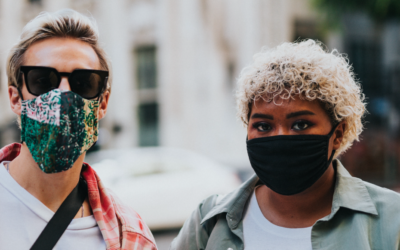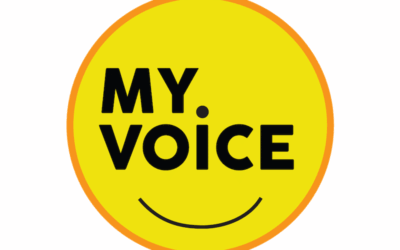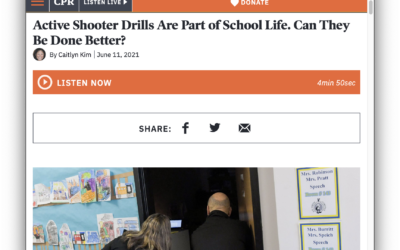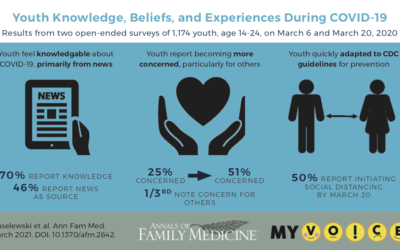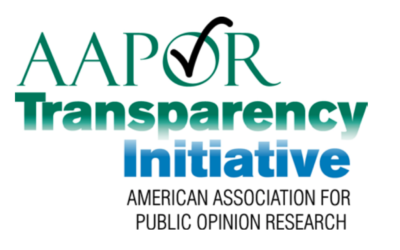News
MyVoice Student Researcher Presentation on Youth Perceptions of COVID-19 Vaccines Spotlighted by NASEM
MyVoice researcher and University of Michigan student Xochitl Amaro was featured in a recent article on young people’s motications to get vaccinated against COVID-19 published by the National Academies of Sciences, Engineering, and Medicine...
New paper describes the technology used by MyVoice researchers to perform mixed methods research
In a new publication in the Journal of Mixed Methods Research, MyVoice faculty describe the benefits of using natural language processing (NLP) technologies to conduct mixed methods research. The paper uses the MyVoice project as real-world...
Pandemic tripled telehealth use for Gen Z, but even digital natives want in-person care
Polls of teens and young adults taken before and during pandemic show most see the benefit of telemedicine, especially video and for minor ailments.
MyVoicers Share their Best Moments from the Last Year
Our Best Moments from the Last Year I went out with my friend at 3:00 am to an empty field and looked at the stars Quitting vape. I got my first appartment!! I don't think I've ever been so proud of myself. Breaking 5:00 in the mile in quarantine while training on my...
MyVoice Active Shooter Drill Researcher on Colorado Public Radio
N’Dea Moore-Petinak, MyVoice researcher and Ph.D. candidate at the University of Michigan School of Public Health, spoke to Colorado Public Radio for a June 22, 2021 piece “Active Shooter Drills Are Part of School Life. Can They Be Done Better?.” The piece mentions MyVoice research that N’Dea led on youth experiences and perceptions of active shooter drills at their schools. The Myvoice paper was published in the Journal of Adolescent Health.
Young people want justice for bad social media behavior, more action from platforms
A new MyVoice paper, led by youth social computing expert and Associate Professor of Information Sarita Schoenebeck, Ph.D., analyzed MyVoicers’ responses to questions about online harassment and bullying and how it should be resolved both interpersonally and through the policies and practices of social media companies. Read this press release from the University of Michigan and find the paper abstract published in the Proceedings of the ACM on Human-Computer Interaction.
Three new MyVoice papers seek to inform youth-centered pandemic messaging
Using national data from MyVoice of people between the ages of 14 and 24 taken at several points in 2020, researchers from the University of Michigan find a clear theme: that most young people are taking COVID-19 seriously and trying to follow public health guidance, and that many of them they are motivated by the desire to protect others.
Most Young People Want the COVID-19 Vaccine
But just as with older generations, a shrinking but still sizable minority of people age 14 to 24 say they’re not willing to get vaccinated, or that their decision will depend on safety.
That makes it crucial for public health authorities, health care providers and others to create vaccination-related materials that reach young people in ways that are relevant to them.
The data, from the text-message-based MyVoice, a national survey of youth age 14 to 24 years based at the University of Michigan, are published in a new paper in the Journal of Adolescent Health, and supplemented by new polling data just received in the past week.
MyVoice Joins the American Association for Public Opinion Research’s Transparency Initiative
MyVoice is proud to join esteemed pollsters and surveys like Gallup, Marist, and Pew Research as a new member of the American Association for Public Opinion Research (AAPOR) Transparency Initiative (TI). The The goal of the Transparency Initiative is to promote methodological openness, disclosure, and transparency in research design by supporting survey organizations in creating and utilizing simple and efficient means for disclosing methodology when publicly disseminating results.

